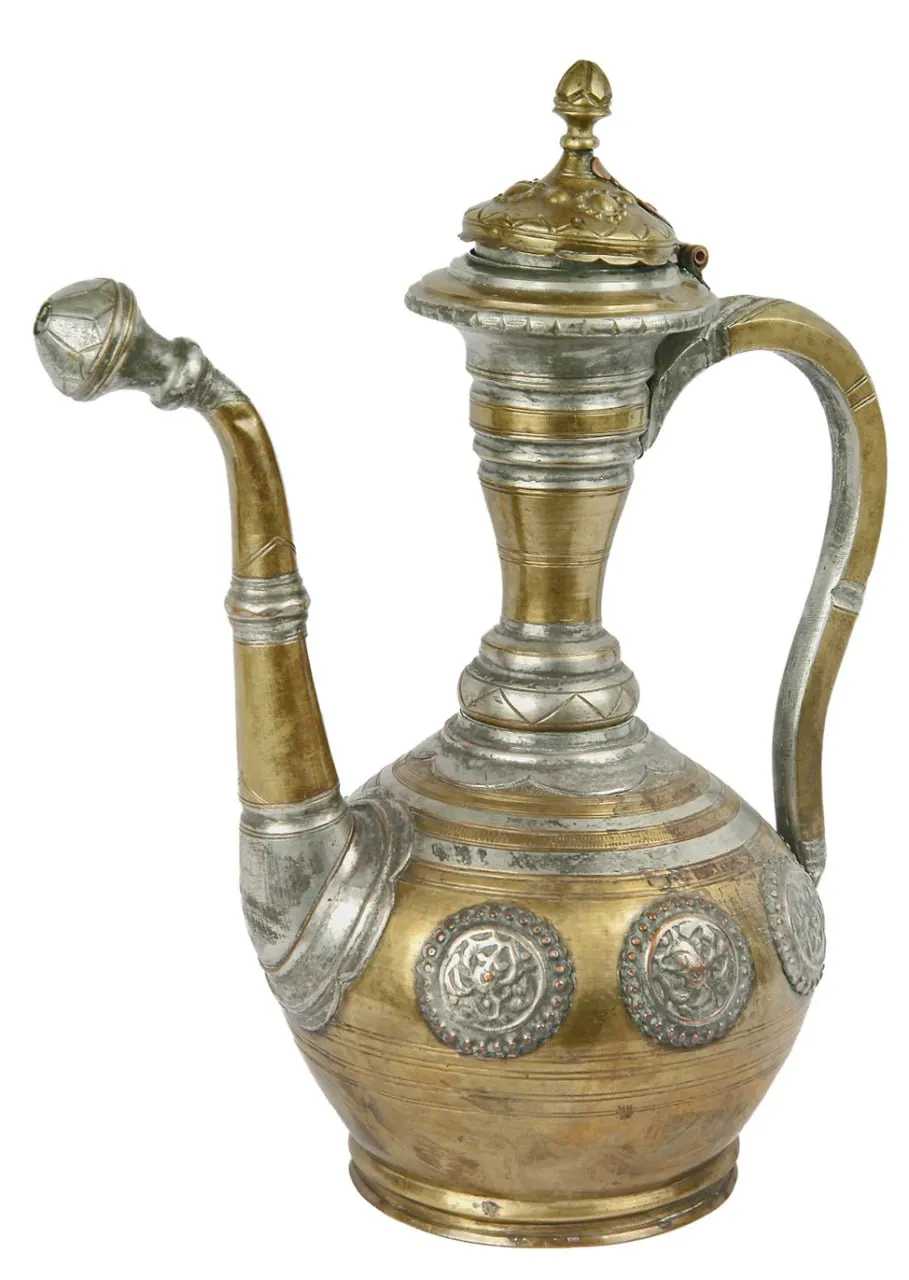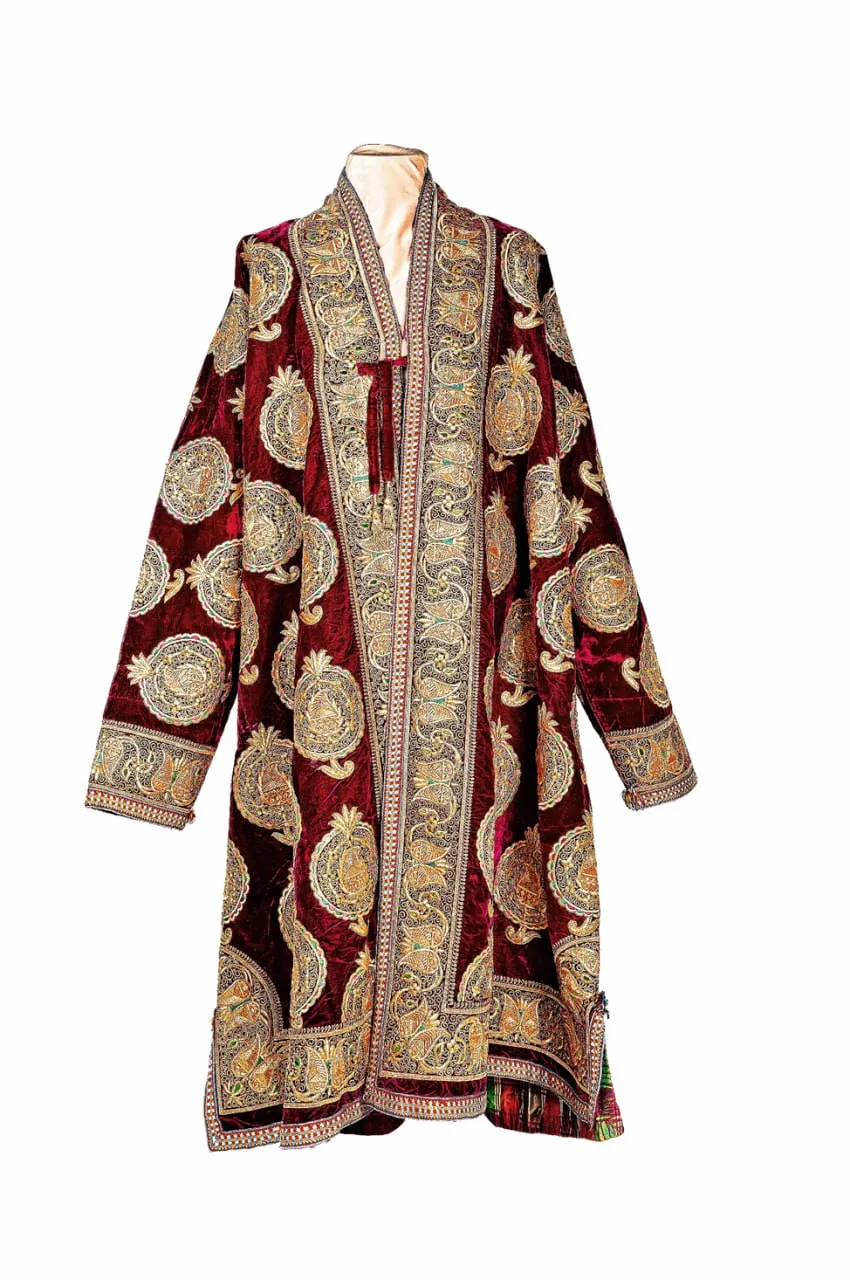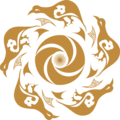According to the protocol of November 22, 1936, the Central Antireligious Museum in Moscow, “in exchange”, purchased and registered in January 1937 “duplicate exhibits from the Samarkand State Museum.”
Most of arrivals were items of the Muslim cult. In particular, the list of 56 items in storage contains the following items published in this catalogue: a qalamdan – a wooden case with a “rose” pattern, a jam-chilkalit – “a copper basin for holy water with two-sided inscriptions”, four name seals – “two of them square in shape and two of an oblong oval shape”, a copper panjah – “a flag emblem; a flat circle on the handle, with a triple branching at the top, a middle one, jagged, in the form of a hand”, and a “Quran of an octagonal form (small)”.
According to the protocol of December 26, 1936, “as part of an exchange based on agreement” 13 exhibits were purchased from the Museum of National Economy of the Uzbek SSR. Among them, the pearl of the Uzbek collection of the Museum is the robe of the Bukhara emir and an oftoba, or a “copper jug with six printed badges” for water.
In the same year, the Moscow Museum as part of an exchange replenished its collection with 10 items from the Central Revolutionary Museum of Uzbekistan. Among them, a laukh – “a wooden book holder for the Quran, carved from solid wood, bifold, with carvings at the top” and a kashkul – “an oblong cup for collecting money by dervishes; on the surface side there is a carved picture, the edges are fringed with turquoise and two red gems in bezels”.
You can learn more about this topic in the book-album “The Collection of the State Museum of the History of Religion” (Volume XII) from the series “Cultural legacy of Uzbekistan in the world collections”.
The general sponsor of the project is the oilfield services company Eriell-Group.


